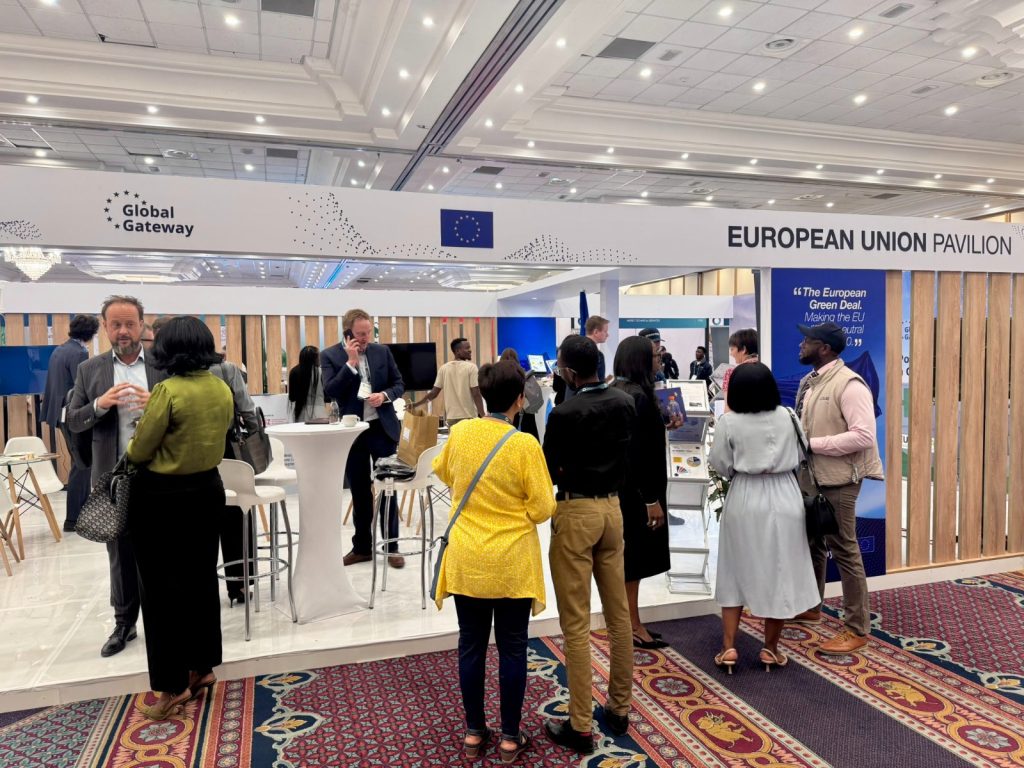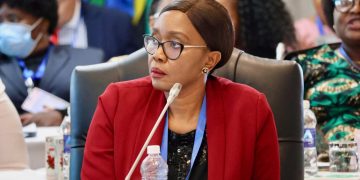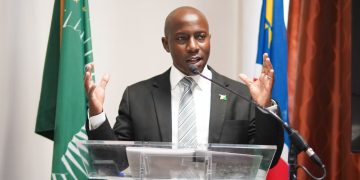
The European Union says it is supporting Namibia’s green energy sector through coordinated initiatives in policy, skills development and investment planning, aimed at equipping Namibians with the expertise needed to benefit from green hydrogen opportunities.
Germany, through the German Agency for International Cooperation (GIZ), said it is contributing via four programmes funded by its Federal Ministry of Economic Affairs and Energy and the Federal Ministry of Economic Cooperation and Development. Junior Technical Advisor at GIZ, Simaneka Nangombe, said these include the EU GET Transform Programme, the H2Up hydrogen ramp-up initiative, the H2 Business Alliance and the Energy Partnerships Programme.
“Energy Partnerships is a global platform that addresses country-specific energy challenges. In Namibia, we are working with the Namibia Green Hydrogen Programme and the Ministry of Works and Transport to create a National Action Plan for maritime decarbonisation,” Nangombe said.
According to GIZ, a national task force that includes NAMPORT, the Ministry of Works and Transport, and the Ministry of Industries, Mines and Energy has been formed to lead the plan.
The agency said training for task force members will take place in Stockholm before a consultant is appointed to draft the plan.
Nangombe further highlighted GIZ’s Integrated Urban Development project in Lüderitz and Aus, which she said engages communities as green hydrogen investments expand.
Nangombe said the pro-TVET programme is also supporting the hydrogen sector by providing equipment, trainer support and capacity building for vocational centres.
She said the programme has produced a skills gap analysis to guide training priorities.
“These projects are designed to match Namibia’s green hydrogen ambitions with targeted capacity building, inclusive planning, and practical training opportunities,” she said.
The GET Transform project, co-funded by Germany, the EU and the Netherlands, is helping develop Namibia’s energy master plan. Country Window Coordinator for the project, Uwe Kuepker, said discussions with Namibia’s Ministry of Energy began late last year to define priorities.
“Data gathering across renewable energy, petroleum, NamPower, and investment will continue for about a year before drafting begins. The first version of the master plan is expected by late May 2026 or early 2027. This master plan is a living document that will evolve with Namibia’s energy priorities and can be updated every few years,” Kuepker said.
The Netherlands is also studying the Namibian market to identify opportunities for its companies.
“The Netherlands has a prominent booth at the summit, supporting Dutch companies as they enter the Namibian green hydrogen market. We are very pleased with the overall turnout. There are twelve companies present, which is significant, and importantly, these are the right companies ready to explore projects and capable of scaling up,” said Head of the Economic Section at the Embassy of the Kingdom of the Netherlands in Pretoria, Bram Van Opijnen.
Green Hydrogen Policy Officer at the Netherlands Embassy, Palesa Shipena, said the Netherlands and Namibia are collaborating on skills development initiatives.
“A key project is the ‘Mapping of Potential Skills Development Projects in Namibia,’ commissioned by the Netherlands Enterprise Agency, which aims to identify opportunities for bilateral cooperation in skills development,” Shipena said.
Shipena added that in May 2025, a Namibian delegation joined a four-day skills exchange in the Netherlands under EU–Namibia cooperation on vocational education, universities and civil society capacity building in green hydrogen.
Further support is being channelled through Finland. Finnish coordinator for the Team Europe Initiative on Opportunity-Driven Skills and Vocational Education and Training in Africa (TEI OP-VET), Heli Mikkola, said the programme, launched in 2024, offers grants, curriculum support and regional exchanges for green hydrogen training.
She said one €2 million grant is pending in Namibia.
“Our initiative starts from real job opportunities created by investors, identifies the skills required, and works with the private sector to ensure training matches industry needs,” Mikkola said. She added that more than 300 applications were received from sub-Saharan Africa, with selected projects aimed at building networks and improving collaboration. “Upskilling and reskilling are central to ensuring Namibians benefit from green energy investments, but timing is critical to match training with project rollouts,” she said.
EU representatives said these initiatives were highlighted at the EU Pavilion during the recent Global Green Hydrogen Summit, where they engaged with Namibian officials, industry and academia to advance policy, skills and investment in the sector.












